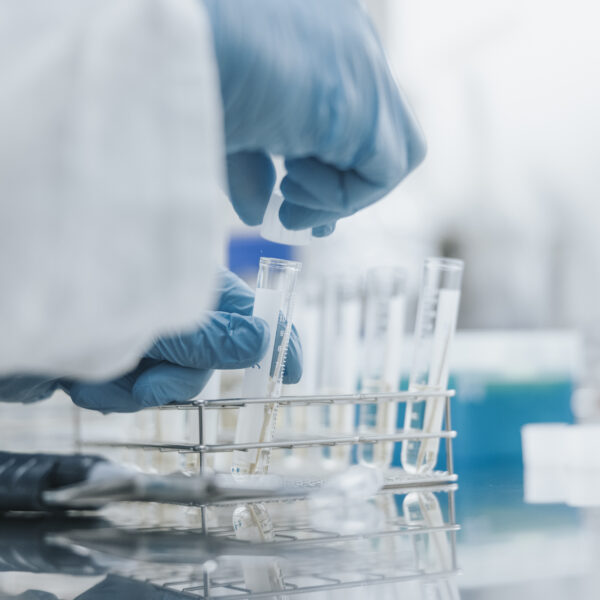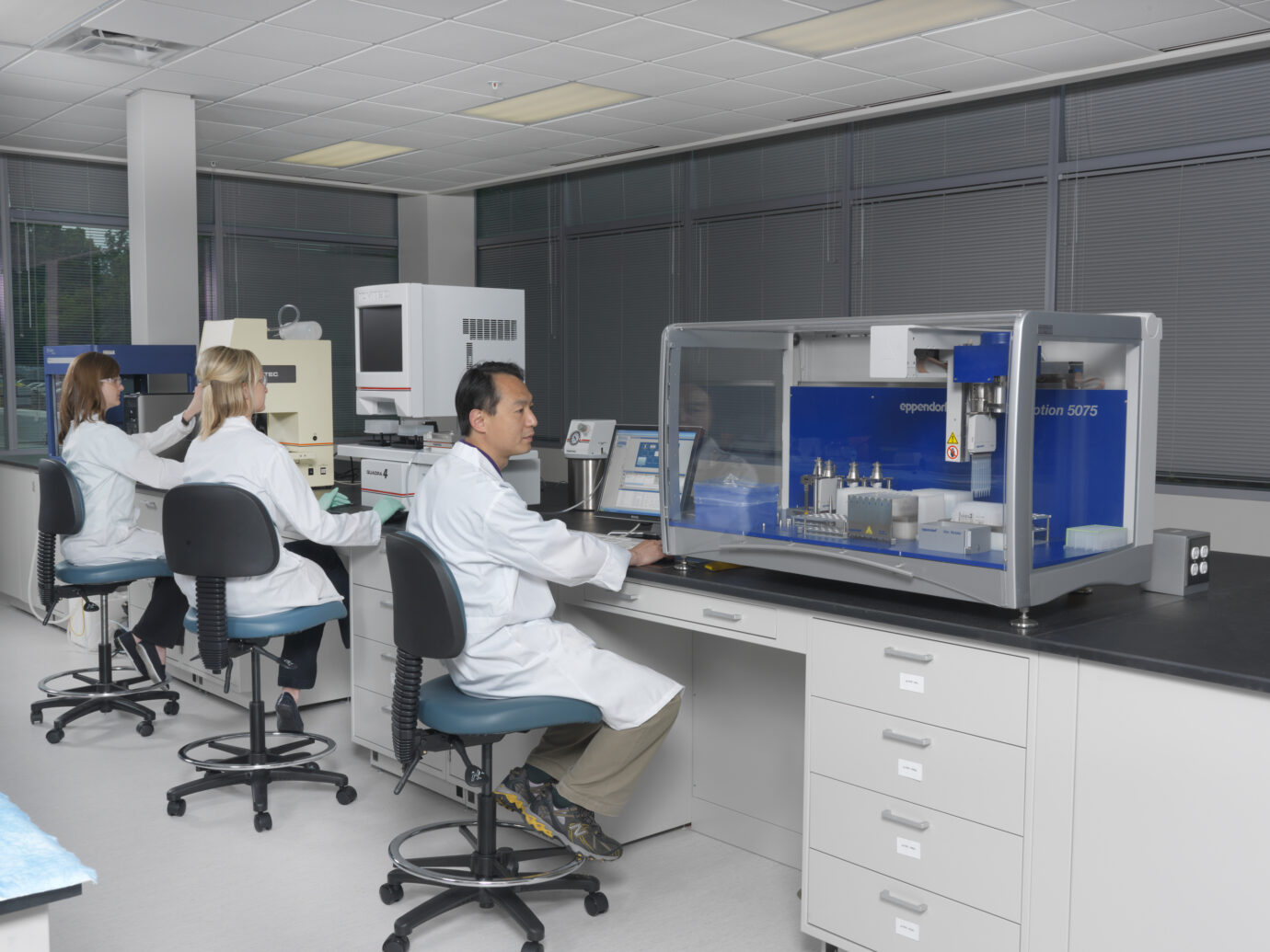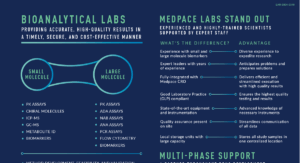
Supporting Preclinical Drug Development
Medpace Bioanalytical Laboratories works on bioanalytical studies in all stages of drug development, including preclinical studies. Before human trials can begin, drug candidates are tested in animals to examine PK or TK properties as well as to determine the toxicity of the drug candidate. Because these studies are critical to human safety, the pivotal preclinical studies must be conducted following Good Laboratory Practices (GLP) to ensure the reliability of the data. Medpace adheres to all GLP requirements and has a robust quality system and quality assurance unit that you can have confidence in.
Preclinical PK Studies
The goal of a preclinical drug development is to convince the regulatory authorities that the drug candidate is safe for the initial human testing and to show that the drug exhibits the desired pharmacological activity. Before the drug can be tested in humans, GLP preclinical PK studies should be performed in a rodent and non-rodent species. Most often, sponsors choose rat and dog. The purpose of these PK studies is to show that the drug is safe to use and to provide information used to determine human equivalent doses (HED).
Preclinical pharmacokinetic (PK) studies determine the concentration of the drug candidate within different parts of the animal at defined timepoints after administration of the drug. Preclinical PK data is a critical component used by drug developers to determine if the drug candidate will be safe and effective. Medpace Bioanalytical Laboratories is a world recognized leader in PK bioanalysis and would be a great choice for conducting your preclinical PK studies.
Preclinical TK Studies
Similar to pharmacokinetic (PK) studies, toxicokinetic (TK) studies determine the concentration of the drug within different parts of the animal at defined timepoints after administration of the drug. However, the difference between PK and TK studies is that TK studies support toxicology studies which use exaggerated concentrations of the drug candidate in order to study how toxic the drug may be.
Preclinical toxicology studies are often comprised of acute (single dose), subacute (repeat dose), genotoxicity, and safety pharmacology studies. Typically, a 28-day repeat dose toxicology study in rodent and non-rodents is needed before the pharmaceutical is approved to be tested in humans. According to ICH S3A, the need for toxicokinetic data to support a specific toxicity study should be assessed on a case-by-case basis in order to provide enough data to provide a risk and safety assessment. The expert bioanalytical chemists at Medpace Bioanalytical Laboratories can perform the bioanalysis of your TK study using state-of-the-art instrumentation and decades of experience.
Preclinical Guidance Documents
- FDA Guidance Document – Bioanalytical Method Validation
- FDA Guidance Document – M10 Bioanalytical Method Validation
- FDA Guidance Document – Good Laboratory Practices Questions and Answers
- ICH Guidance Document – Safety Pharmacology Studies for Human Pharmaceuticals
- ICH Guidance Document – Preclinical Safety Evaluation of Biotechnology-Derived Pharmaceuticals
- EMA Guidance Document – Guideline on Bioanalytical Method Validation


